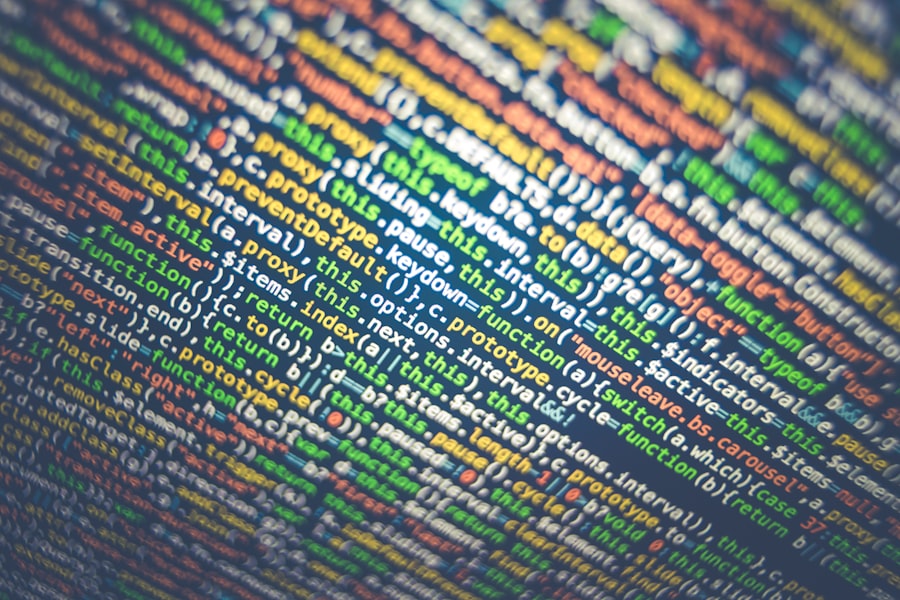Data types in C are fundamental building blocks that define the nature of data that can be stored and manipulated within a program. They dictate how much memory is allocated for a variable, what kind of operations can be performed on that variable, and how the data is interpreted by the compiler. Understanding data types is crucial for effective programming in C, as it directly influences performance, memory usage, and the overall behavior of the application.
C provides a rich set of data types that cater to various programming needs, ranging from simple numerical values to complex structures. The significance of data types extends beyond mere storage; they also enforce type safety, which helps prevent errors during compilation and runtime. For instance, if a programmer attempts to perform arithmetic operations on incompatible types, the compiler will flag these errors, thereby reducing the likelihood of unexpected behavior in the program.
This feature is particularly important in a language like C, where low-level memory manipulation is common. By understanding and utilizing data types effectively, programmers can write more robust and efficient code.
Key Takeaways
- Data types in C are used to define the type of data that a variable can store.
- Variables in C are declared with a specific data type and can be assigned values of that type.
- Basic data types in C include integers, floating point numbers, and characters.
- Expressions in C are formed using operators and can be used to perform calculations and comparisons.
- Type conversion and type casting are used to change the data type of a variable in C. It is important to be mindful of potential data loss when performing these operations.
- Best practices for handling data types in C include using the appropriate data type for the intended purpose, avoiding unnecessary type conversions, and ensuring proper initialization of variables.
Understanding Variables and Declarations
In C, a variable is essentially a named storage location in memory that holds a value. Each variable must be declared before it can be used, which involves specifying its name and data type. The declaration informs the compiler about the variable’s intended use and the kind of data it will store.
For example, declaring an integer variable would look like this: `int age;`. This statement tells the compiler to allocate enough memory to hold an integer value and associates that memory with the name `age`. Variable declarations can also include initializations, where a variable is assigned a value at the time of declaration.
For instance, `int age = 25;` not only declares the variable `age` but also initializes it with the value 25. This practice is beneficial as it ensures that variables have defined values before they are used in expressions or calculations. Additionally, C allows for multiple variables of the same type to be declared in a single statement, such as `int x = 5, y = 10;`, which can enhance code readability and conciseness.
Exploring Basic Data Types: Integers, Floating Point, and Characters

C provides several basic data types that cater to different kinds of data. The most commonly used are integers, floating-point numbers, and characters. Integers are whole numbers without any fractional component and can be declared using the `int` keyword.
Depending on the system architecture, an `int` typically occupies 4 bytes of memory, allowing it to represent values ranging from -2,147,483,648 to 2,147,483,647 on a 32-bit system. Variants such as `short int` and `long int` allow for smaller or larger ranges of integer values, respectively. Floating-point numbers are used to represent real numbers that require decimal points.
In C, these are declared using the `float` or `double` keywords. A `float` typically occupies 4 bytes and can represent values with single precision, while a `double` uses 8 bytes for double precision. This distinction is crucial when dealing with calculations that require high accuracy, such as scientific computations or financial applications.
For example, declaring a floating-point variable might look like this: `float price = 19.99;`. Characters are represented using the `char` data type and are typically stored as single-byte values corresponding to ASCII characters. A character variable can be declared as `char initial = ‘A’;`, which assigns the character ‘A’ to the variable `initial`.
Working with Expressions and Operators
| Topic | Metrics |
|---|---|
| Arithmetic Operators | Usage frequency, performance impact |
| Comparison Operators | Common use cases, best practices |
| Logical Operators | Complexity of expressions, readability |
| Conditional (Ternary) Operator | Code maintainability, potential pitfalls |
| Bitwise Operators | Application in specific scenarios, performance considerations |
Expressions in C are combinations of variables, constants, and operators that yield a value when evaluated. Operators are symbols that specify operations to be performed on operands. C supports various types of operators including arithmetic operators (such as +, -, *, /), relational operators (such as ==, !=, <, >), and logical operators (such as &&, ||).
Understanding how to construct expressions using these operators is essential for performing calculations and making decisions within a program. For instance, consider an expression that calculates the area of a rectangle: `area = length * width;`. Here, `length` and `width` are variables representing the dimensions of the rectangle, while `*` is the multiplication operator.
The result of this expression is stored in the variable `area`. Additionally, C allows for operator precedence and associativity rules that dictate the order in which operations are performed. For example, in an expression like `a + b * c`, multiplication takes precedence over addition, so `b * c` is evaluated first before adding `a`.
This understanding is crucial for writing correct and efficient code.
Type Conversion and Type Casting
Type conversion refers to the process of converting one data type into another. In C, this can occur implicitly or explicitly. Implicit conversion happens automatically when different data types are used together in expressions.
For example, if an integer is added to a floating-point number, the integer is automatically converted to a float before performing the addition. This automatic conversion helps maintain precision but can lead to unexpected results if not properly understood. Explicit type conversion, or type casting, allows programmers to manually convert one data type into another using casting operators.
For instance, if you want to convert an integer to a float explicitly, you can use `(float)integerVariable`. This approach is particularly useful when you want to ensure that division operations yield floating-point results rather than integer results. For example: “`c
int a = 5;
int b = 2;
float result = (float)a / b; // result will be 2.5
“` Without casting `a`, the division would yield an integer result of 2 instead of the desired floating-point result.
Best Practices for Handling Data Types in C

When working with data types in C, adhering to best practices can significantly enhance code quality and maintainability. One key practice is to always choose the most appropriate data type for your variables based on their intended use. For instance, if you know that a variable will only ever hold small integers, using `short int` instead of `int` can save memory and improve performance.
Another important practice is to initialize variables at the time of declaration whenever possible. This not only prevents undefined behavior due to uninitialized variables but also makes your code easier to read and understand.
Additionally, using meaningful variable names that reflect their purpose can greatly enhance code clarity. Instead of using generic names like `x` or `y`, consider more descriptive names such as `totalPrice` or `userAge`. Moreover, being mindful of type conversions and potential pitfalls associated with them is essential for writing robust code.
Always check for possible loss of information when converting between types—especially when converting from floating-point to integer types—since this can lead to truncation of values. Finally, leveraging compiler warnings and static analysis tools can help catch potential issues related to data types early in the development process. By following these best practices and maintaining a solid understanding of data types in C, programmers can create efficient and reliable applications that perform well across various platforms and use cases.
If you are interested in exploring different philosophical perspectives, you may want to check out this article on Plato’s Knowledge and Opinion Theory of Forms and Justice. Plato’s ideas on knowledge and justice can provide valuable insights into the nature of reality and ethics. Understanding these concepts can help deepen your understanding of the philosophical underpinnings of various disciplines, including computer science.





















+ There are no comments
Add yours